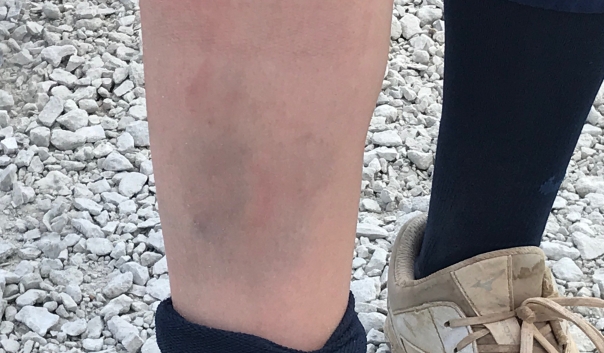Monthly Archives: May 2019
You Can’t Hurry Love – Or Softball Skills

Those of you of a certain age (and you know what that age is) probably remember this great song from the ultimate 60s Motown girl group, The Supremes:
If you’re not familiar with the song, be sure to check it out. If you listen closely you’ll hear a lot of the foundational elements that today’s pop music is built on.
But what you’ll also hear is a message that also pertains to fastpitch softball players. Not to mention their coaches and parents.
We live in a world where we want what we want when we want it. We don’t like to wait – we want results NOW!!!! And we’re afraid if we don’t get them NOW!!!! we’re going to miss out on important opportunities.
Now, if you’re 16 years old or above, there is a bit of hurry up involved. If you’re planning to play college softball you don’t have much time to develop the skills required to be invited onto a team. If you’re not planning on playing beyond high school, the end of your career is looming.
The thing is, however, is that softball skills take time to develop. And repetition. Lots and lots of good repetition.
No matter how much you want to be successful, or how much you wish the time element wasn’t true, it is.
Now, a good coach or private instructor can help you shortcut some of that time. Back in the days when The Supremes were cranking out hit song after hit song, most softball skill learning happened through trial and error, and emulation of successful older players.
You looked at what those players were doing and you tried to copy it. Eventually, you figured out what worked best for you and you were ready to rock and roll.
A good coach or instructor will already have a pretty strong idea of what works and what doesn’t, and will be able to look at what you’re doing and help you throw out the stuff that doesn’t work faster.
Still, it’s a process. It may not take as much time as doing it yourself, but it will still take time. Lots and lots of time.
The more you practice with intention and a goal in mind, the more you’ll be able to shave off some of that time. But it will still take time. There is no getting around that.
It takes time to replace old habits with new ones. Here’s a great article that explains why. The short version is that you’re actually making physiological changes under the hood, rewriting what has been hard wired into your brain so you can do things differently/better. Here’s some additional information on it from a past post too.
It would be nice if that weren’t the case – if there was some secret shortcut that would get you to the destination immediately like a transporter on Star Trek. But there isn’t.
In fact, when I start with a new student I will usually place my hand on her head or helmet and tell her if I could just do that, say “Be healed” and instantly turn her into a great player I would.
Of course, I also point out that if I could do that lessons would be $1,000 each and there would be a line down the street a mile long to get some of that, because that’s the dream.
But I can’t. No one can. Each of us learns in our own way, and in our own time.
Put 10 players in front of any coach, have them all receive the same instruction at the same time, and guess what? The results you get will vary.
Some will get it right away, some will get it somewhat, and some may not get it at all and will need it explained differently.
It’s the same for the long-term. Learning anything, especially if you want to do it at a high level, takes time.
It would be nice if coaches could just show a player what to do and she’d be instantly perfect at it, but it doesn’t work that way. And thinking it could is likely to lead to disappointment, which leads to discouragement, which leads to players deciding softball isn’t for them anymore.
Don’t fall into that trap. Instead, follow the Stockdale Paradox. When you’re facing a challenge, like learning a new skill or a new position, know that you will succeed. But don’t put a timeframe or other limitations on it.
Instead, believe in yourself and just keep plugging away at it. Do the right things and you’ll get there. And what a story you’ll have to tell ESPN when they come to interview you.
Fastpitch Skills: Like Riding A Bike

Photo by Lgh_9 on Pexels.com
You would probably be hard-pressed to find anyone who hasn’t heard the expression “It’s like riding a bike – once you learn how you never forget.” This expression is often used to refer to going back to something difficult after years of not doing it, implying that it shouldn’t be difficult to pick up where you left off.
As anyone who has actually ridden a bike after not riding one for 20 years can attest, it’s not quite as simple as it sounds. There is definitely a bit of uncertainty at first, and it’s unlikely you’re going to go flying around like you did as a kid right away.
What people often forget, however, is how difficult learning to ride a bike actually is. Those of us who can ride one take it for granted. But it wasn’t always so simple.
At first, our parents (or some other adult) probably raised the training wheels some so we could get a sense of what it was like without the actual danger of falling off.
Eventually, though, the training wheels came off, and an adult held onto the back of the seat, running along behind us as we got the hang of balancing ourselves while churning our legs to make it go. Most of those adults also probably let go without telling us, despite our admonitions not to, to prove to us that we now had all the skills required to ride successfully. And oh, how we rode!
I bring these sometimes painful yet exhilarating memories up because learning fastpitch softball skills is no different.
At first, players are a bit tentative. Whether they’re pitching, hitting, throwing, fielding, etc. they’re not quite sure how to move and manage all the various pieces, and they do the fastpitch equivalent of falling off a lot.
As they learn, they have to focus on what they’re doing, and most have to think through the various pieces as their brains learn to process the skill. But then at some point it all clicks, and they’re able to do whatever it is they’re trying to do, which enables them to advance as a player.
Just as with riding a bike, it happens at different points for different players. The seemingly lucky ones get it right away. I say “seemingly” because sometimes when things come too easily it can hold players back from developing their skills at a deeper level. Especially when coaches, parents, teammates, etc. are more focused on winning today than helping players become the best they can be. There is value in the struggle.
For most, the skills will come more slowly, with plenty of bumps, bruises and scrapes acting as battle scars as they learn. But eventually they will come.
The goal, of course, is to make fastpitch skills like riding a bike – something players can execute without thinking.
Assuming you can already ride a bike, consider how you do it. The odds are very high that you just hop and do it. Your body knows how to move, how to balance, and what to do when. It feels instinctual, even though it is actually a learned skill.
That’s where you want players to get to on the softball field. They don’t need to “remember” to raise their elbow to shoulder height when throwing. They just do it.
They don’t need to remember to lead the swing with their hips instead of their bats. They just do it. They don’t need to remember to relax their arms and whip through the release zone when they’re pitching. They just do it. It’s like one big Nike ad.
That’s the goal. But it’s important to remember that it takes time. Again, some kids learn to ride their bikes on their own right away, while others can take weeks – especially if they’re afraid of falling off. But they all will learn.
And it takes good repetitions. The more players (and coaches/parents) concentrate on doing it right from the start, i.e., focusing on the process rather than the outcomes, the easier it becomes to do it right under game pressure.
Finally, it takes patience to understand about it taking time and good repetitions. It’s easy to get caught up in wanting everything to be perfect right away, like the players you see on TV.
But I can guarantee you the players you see on TV didn’t look like that when they were younger. In fact, they may have looked more awkward than the player(s) you’re working with right now, as this video of a certain well-known left-handed pitcher shows.
But they persisted and found their “bicycle moment” when it all clicked and they were just able to ride.
You wouldn’t expect any child to simply hop onto a bike and start pedaling away – much less do the complex BMX tricks you see on TV. There’s a progression, and it all starts with those first shaky feet.
It’s the same with fastpitch softball skills. They may need a lot of help at first. But eventually, with persistence, they will find their way, and those skills will be a part of their game forever.
Nothing Grows in the Comfort Zone

Photo by Mina-Marie Michell on Pexels.com
Came across a version of the headline of this post yesterday in another context this week and thought “How appropriate for fastpitch softball!”
Of course, it immediately brought to mind an image of a lush, beautiful landscape with flowers, and trees, and butterflies, and cute little animals romping around freely under a nearly cloudless sky on a warm day with a cool breeze. Surrounded on all sides by a desolate landscape.
We all love our comfort zones. By definition we’re comfortable there. Life is easy, there’s no stress, we can just go along our merry way without a worry in the world.
As nice as that sounds, however, the problem with the comfort zone is it’s locked in time and place. Sure it seems nice, and we believe nothing bad will happen there. But nothing great or new will happen there either.
And that’s the problem. As a player, or as a coach, you’re either moving forward or you’re moving backward. Because it’s not just about you – it’s about you relative to everyone else.
If you stay in your comfort zone while others are struggling to get better, those others will eventually pass you by. Think of a log stuck in a river.
The log stays where it is while the water goes rushing by. It’s not that the log went backward; it’s still exactly where it was. But the water kept moving, and now it’s further downstream than it was.
So it is with your softball skills/knowledge and ability to play/coach. You won’t grow as a player or a coach if you just decide to stay in your comfort zone. You’ll be stuck in time while everyone else moves ahead.
Think of the hitter who dominates when she is younger because she is bigger, or stronger, or better-coordinated than the other girls. She judges her ability based on outcomes, and since her outcomes are better than the others she doesn’t bother to work on getting better. She’s comfortable doing what she’s doing.
In the meantime, other players who may not have been as blessed with natural abilities take lessons, or study what great players do on their own, and start working to make the most of the abilities they have. They learn quality mechanics and how to apply them, and suddenly as the pitching gets better they’re hitting better than the “natural” who stayed in comfort zone.
They grew, and the “natural” didn’t. Suddenly the “natural” doesn’t have as much of an advantage anymore. Eventually the river of players passes her by and she’s left to wonder, “what happened?”
This is also true of coaches. There are so many coaches out there who view the fact they played baseball or softball in high school or college X years ago as giving them all the knowledge they need to coach today’s players.
They stay with what they did (or what they think they did, which isn’t always the same) and what worked for them rather than looking into whether there might be a better way. As a result, they put their players at a disadvantage versus those who are being coached by coaches who are willing to get out of their comfort zones and learn new things.
Great coaches, whether they played at a high level or not, are always looking for every advantage and piece of knowledge they can bring to their players. They’re not afraid to say, “I know I used to teach X, but I’m not teaching that anymore. Let’s do Y, because I believe it’s a better way to go.”
No less than former UCLA head coach and NFCA Hall of Famer Sue Enquist is one of those coaches. I heard a story a few years ago that she was making a presentation at a coach’s clinic about hitting when a member of the audience raised his hand and said that he had one of her hitting instruction videos and what she was saying completely contradicted what she said in the video.
Without blinking an eye she owned it and said, “Well, I know a lot more now than I did then.”
If someone at that level, with all her accomplishments and championships wasn’t afraid to get out of her comfort zone so she could grow, the rest of us shouldn’t be either.
Yes, the living is easy in the comfort zone. But that’s the problem. There’s no growth there – everything just stays as-is.
Steel is forged in fire. Diamonds are created under tremendous pressure.
If you want to grow as a player or coach, make the leap. Get out of your comfort zone and become the player or coach you were meant to be.
Seems Like I Never Get to See the Good Stuff

One of my favorite things to do is to go out and catch a game where one (or more) of my students is playing. It can be a bit nerve-wracking at times – especially if a pitching student is facing a hitting student since by default one of them is about to fail – but overall I find it highly valuable.
One of the best parts, of course, is seeing how they perform in context. It’s one thing for hitters to be banging balls all over the batting cage, or pitchers to be racking up the Ks in bullpen sessions. It’s another to see what they do in an actual game situation. It’s like Han Solo says:
About a week ago I had one of those rare opportunities. I didn’t have lessons until later, and high school softball starts pretty early (usually 4:30 during the weekdays) so I ran out to a local school to watch a hitting student named Ella play at least part of a game.
She came to bat twice against what I would characterize as a pretty good pitcher, and she struck out both times. As I watched her struggle I switched from “just here to enjoy a game” mode to “coach/analyst” mode.
I noticed something in her swing. Much as I would have liked to have run down to the dugout and told her about it I would never actually do such a thing. So I did the next best thing. I texted her mom, who was out of town, and asked her to share the information with Ella when the game was over.
Ella’s mom responded that she would, but then I had to leave in the middle of the game to go teach some lessons.
Later I got another text from Ella’s mom. Apparently after I left Ella hit a home run and a double. So she ended up 2-4 that day accumulating 6 total bases. Her mom did say she would pass my message along anyway.
But it figures. I don’t know if this happens to others, but I feel like it always happens to me. I go out to watch a student play and she seems to have a rough time. But I’ll hear before I got there she did awesome, or after I left she got it together and played like a champion.
It wasn’t just Ella either. A couple of days later I watched a 12U pitcher named Sammie for a bit in her first outdoor game of the season. It wasn’t pretty. In the first inning she pitched, which I was there to see, she gave up something like 6 walks, which is uncharacteristic for her and a total surprise after the great off-season she had. She also had 2 Ks, but it wasn’t exactly an offset.
Then I left for lessons, but continued to follow along on GameChanger. Of course, once I was gone she proceeded to strike out the side in the next inning, only giving up one meaningless walk.
It’s enough to make you wonder, “Is it me?” Now, I have heard from parents before that their daughters admit to being nervous when they see me at a game. They want to perform well when I come out to see them, and sometimes it makes them uptight.
Which I find strange since who is going to be a bigger fan and cheerleader for them than me? No reason to be nervous, go have fun. But just in case, I’ve started trying to find places to hide so they don’t know I’m there.
I do know I’m not alone in this. I remember the mom of another hitting student named Emma telling me she never got to see her daughter hit a home run. That was quite an accomplishment because her senior season in high school she hit 15 of them. But when mom was there nothing. She eventually did see one, but it was notable for being the exception.
Now, sometimes I go out to watch a game because I know a student is struggling. I consider that a fact-finding mission so we can get her back on track as quickly as possible, so I don’t even count those games in this post.
The ones I’m talking about is where I see or hear the player is doing well, and I go out with the intention of enjoying the show only to see her under-perform. Luckily no one has flat-out asked me not to come to a game yet, but frankly I sometimes wonder why.
The good news for my students is my lesson schedule (not to mention my wife) keeps me busy so I don’t have a lot of time to get out to games. But if you are one of my students and I do show up, please do me a favor. Relax, have a good time, and just play the way you play when I’m not there. We’ll all be happier for that.
So how about you? Ever have that experience when your student/daughter/whoever plays well EXCEPT when you’re there? Share your stories in the comments below!

 plate.)
plate.)



